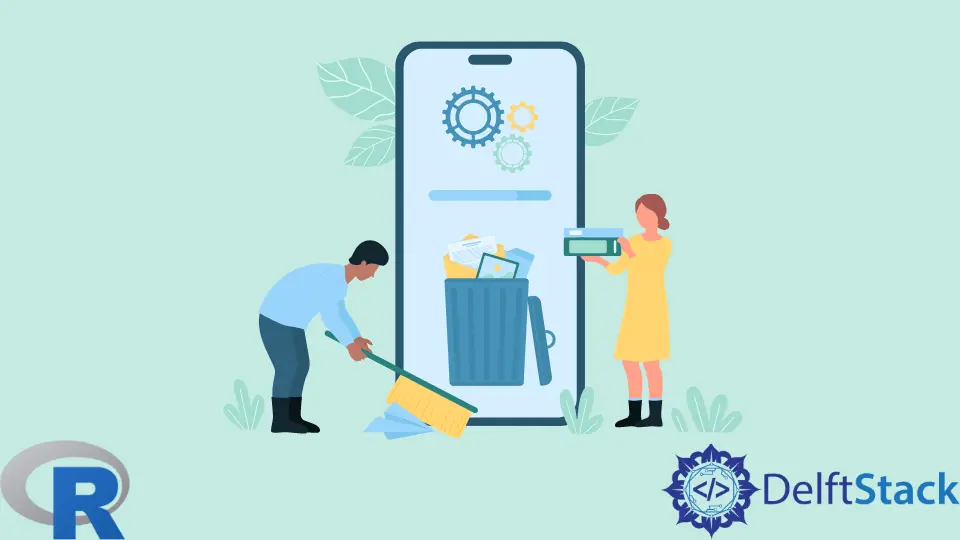How to Clear the Environment in R
- Understanding the R Environment
- Method 1: Using the rm() Function
- Method 2: Clearing Specific Objects
- Method 3: Clearing the Environment with a Keyboard Shortcut
- Conclusion
- FAQ

In the world of R programming, maintaining a clean workspace is crucial for efficient coding and analysis. Whether you’re working on data manipulation, statistical analysis, or machine learning, having a cluttered environment can lead to confusion and errors. Fortunately, there’s a simple solution: you can write a function in R that clears the environment without needing to restart your R session.
In this tutorial, we will guide you through the process of creating this function, ensuring your workspace remains organized and efficient. Let’s dive into the methods available to achieve this.
Understanding the R Environment
Before we jump into the code, it’s important to understand what the R environment is. The environment in R is where all your variables, functions, and data are stored during your session. Over time, as you create and manipulate objects, your environment can become cluttered. This not only makes it difficult to track what you have but can also lead to potential conflicts and errors. By clearing the environment, you can start fresh without restarting R, saving time and enhancing productivity.
Method 1: Using the rm() Function
The first method to clear the environment in R involves using the rm() function. This function allows you to remove specific objects or all objects from your workspace. To remove everything, you can use the list argument with the ls() function.
Here’s how you can implement this:
clear_env <- function() {
rm(list = ls())
}
To use this function, simply call clear_env() in your R console. This will remove all objects from your current environment.
Output:
All objects in the environment have been cleared.
This method is straightforward and effective. By defining a function named clear_env, you encapsulate the clearing process, making it easy to execute whenever needed. The ls() function lists all objects in the environment, and rm() removes them based on that list. This approach is highly useful for data scientists and statisticians who frequently switch between projects and need to maintain organized workspaces.
Method 2: Clearing Specific Objects
In some cases, you may not want to clear the entire environment but rather specific objects. You can modify the clear_env function to accept parameters that specify which objects to remove. This gives you more control over your workspace.
Here’s an example of how to do this:
clear_specific <- function(...){
rm(list = c(...))
}
To use this function, call it with the names of the objects you want to remove, like so: clear_specific("data_frame", "model").
Output:
Specified objects have been cleared from the environment.
This method is particularly useful when you want to retain certain objects while cleaning up others. By passing the names of the objects as arguments, you can selectively clear your workspace without losing important data. This flexibility is essential for those working on complex analyses where certain datasets or models need to remain intact while others are discarded.
Method 3: Clearing the Environment with a Keyboard Shortcut
If you prefer a quicker approach, you can also clear the environment using keyboard shortcuts in RStudio. This method is less about coding and more about utilizing the built-in features of the RStudio IDE.
To clear your environment, simply go to the Environment pane and click on the broom icon, or use the keyboard shortcut Ctrl + Shift + F10. This will clear all objects from your environment instantly.
Output:
Environment cleared using keyboard shortcut.
This method is incredibly efficient for those who are comfortable with RStudio. It allows you to quickly clear your workspace without writing any code. However, it’s worth noting that this method does not provide the same level of control as the previous coding methods. If you often find yourself needing to clear specific objects or want to automate the process, the coding approaches may be more suitable.
Conclusion
Clearing the environment in R is a vital practice for maintaining an organized workspace. Whether you choose to use the rm() function, selectively clear specific objects, or utilize keyboard shortcuts in RStudio, each method has its advantages. By implementing these techniques, you can enhance your productivity and minimize errors in your R programming tasks. Remember, a clean environment leads to clearer thinking and more efficient coding. Start incorporating these methods into your workflow today!
FAQ
-
what does clearing the environment in R do?
Clearing the environment in R removes all objects, variables, and functions from your current workspace, allowing you to start fresh. -
can I recover objects after clearing the environment?
No, once you clear the environment, you cannot recover objects unless they are saved elsewhere. -
is there a way to clear only certain types of objects?
Yes, you can modify the clear function to selectively remove specific objects by naming them. -
does clearing the environment improve performance?
Yes, a clutter-free environment can improve performance and reduce the likelihood of errors during analysis.
- how often should I clear my R environment?
It depends on your workflow, but regularly clearing your environment can help maintain organization and clarity in your projects.